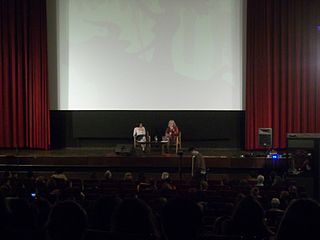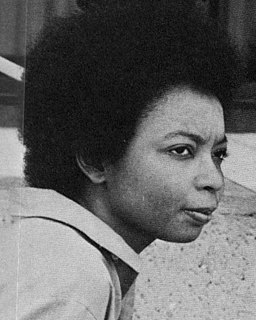A Quote by Flannery O'Connor
She was a good Christian woman with a large respect for religion, though she did not, of course, believe any of it was true.
Related Quotes
The doctor's wife wasn't a bad woman. She was sufficiently convinced of her own importance to believe that God actually did watch everything she did and listen to everything she said, and she was too taken up with rooting out the pride she was prone to feeling in her own holiness to notice any other failings she might have had. She was a do-gooder, which means that all the ill she did, she did without realizing it.
My mom didn't teach me about Marco Polo. She didn't teach me about Napoleon. She didn't teach me about any of that. But she did teach me how to survive and to be a good person. And you need to be a strong woman to do that. She's the biggest person in my life. She's my Virgin Maria. That's why I love religion so much.
A friend, who's a psychologist, told me about a patient once: a woman who was well educated, had a good job, a house and a loving husband. "I did everything right in my life," said the woman. "But I'm still not happy." She never did what she herself wanted, but what she believed society expected from her.
There are things that a woman sings, and only a woman knows the full meaning. You may sing for men as well as for women, but only a woman knows your full meaning. I am not a feminista. I only think a woman should be true to who she believes herself to be. Or who she wants herself to be. Or who she imagines herself to be. I don't know what I mean, or whether I'm true myself to any of that. I don't think there are many of us who are true to our possibilities.
The strongest reason why we ask for woman a voice in the government under which she lives; in the religion she is asked to believe; equality in social life, where she is the chief factor; a place in the trades and professions, where she may earn her bread, is because of her birthright to self-sovereignty; because, as an individual, she must rely on herself.
True the Black woman did the housework, the drudgery; true, she reared the children, often alone, but she did all of that while occupying a place on the job market, a place her mate could not get or which his pride would not let him accept.And she had nothing to fall back on: not maleness, not whiteness, not ladyhood, not anything. And out of the profound desolation of her reality she may very well have invented herself.
A woman can do anything. She can be traditionally feminine and that's all right; she can work, she can stay at home; she can be aggressive; she can be passive; she can be any way she wants with a man. But whenever there are the kinds of choices there are today, unless you have some solid base, life can be frightening.
Guinevere is just head over heels and doesn't know how to handle these new emotions that she's feeling, as a young woman. Unfortunately, she can't reign it all in, all the time. And, even though she tries to do the right thing and be the good girlfriend and have her morals, she slips up a little bit.
although she went home that night feeling happier than she had ever been in her short life, she did not confuse the golf course party with a good party, and she did not tell herself she had a pleasant time. it had been, she felt, a dumb event preceded by excellent invitations. what frankie did that was unusual was to imagine herself in control. the drinks, the clothes, the instructions, the food (there had been none), the location, everything. she asked herself: if i were in charge, how could i have done it better?
People said things they didn't mean all the time. Everybody else in the world seemed able to factor it in. But not Lena. Why did she believe the things people said? Why did she cling to them so literally? Why did she think she knew people when she clearly didn't? Why did she imagine that the world didn't change, when it did? Maybe she didn't change. She believed what people said and she stayed the same." (Lena, 211)







































